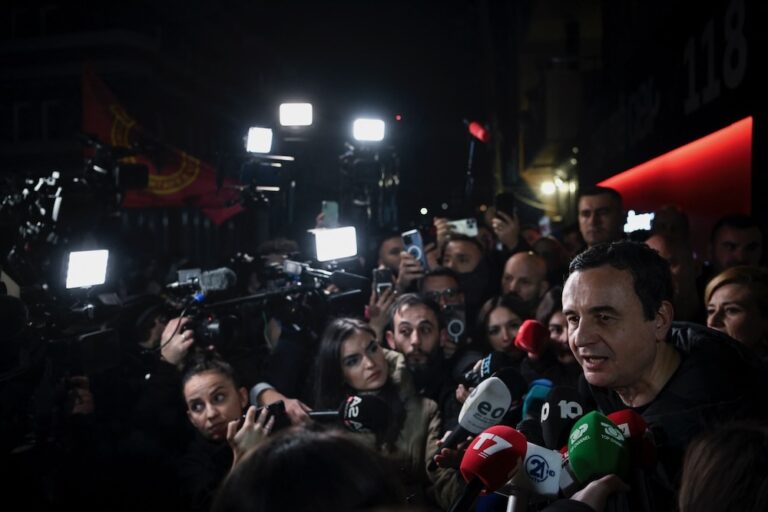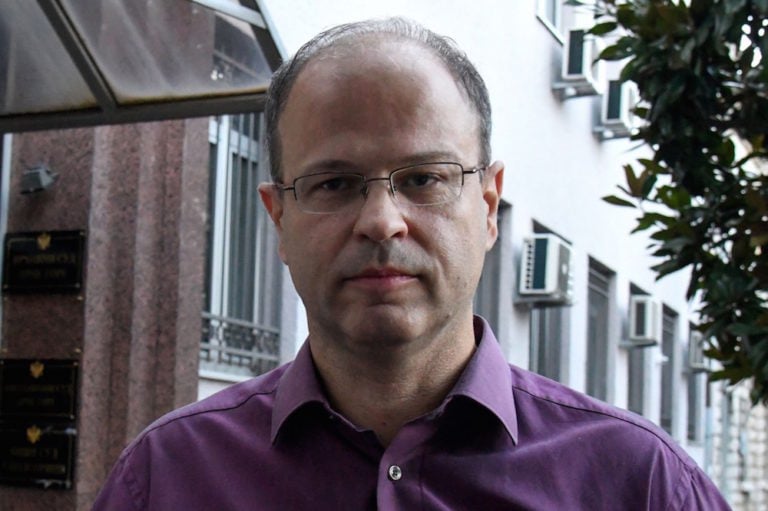The mission concluded that quality journalism is scarce, competition between media outlets is fierce, and content is determined by media owners and powerful individuals.
(IPI/IFEX) – Vienna, February 29, 2012 – The Vienna-based South East Europe Media Organisation (SEEMO), a subsidiary of the International Press Institute (IPI), yesterday released a report on the media situation in Montenegro. SEEMO conducted a press freedom mission to Podgorica, the country’s capital, from Nov. 8-10, 2011.
The delegation met with Prime Minister Igor Luksic and Deputy Minister of Culture Zeljko Rutovic; Police Department Director Veselin Veljovic; Ambassador Leopold Maurer, head of the Delegation of the European Union to Montenegro, and Press and Media Officer Dragan Mugosa; Alyn Roberts, head of the Political and Public Information Unit of the Office of Security and Co-operation in Europe’s Mission to Montenegro, and Media Programme Manager Radka Betcheva; and more than 30 media representatives including owners, directors, editors-in-chief, journalists, media experts, media NGO representatives and other professionals.
The objective of the press freedom mission was to assess the media situation in Montenegro following several developments: a) the introduction of new media-related laws, including decriminalisation of defamation and libel; b) follow-up of the activities related to attacks on journalists, including the 2004 assassination of Dusko Jovanovic, editor-in-chief of the daily Dan; c) fact-finding about pressures on media; and d) evaluation of the steps taken towards the establishment of self-regulatory bodies.
Conclusions
Until December 2010, when Igor Luksic was appointed prime minister, Milo Djukanovic defined both the political and the media scene in Montenegro: media supported or criticised him and he publicly spoke of media he disliked. The current prime minister has adopted friendlier rhetoric. During the meeting with the SEEMO delegation, he expressed full commitment to respecting media freedom.
Different media-related laws have been adopted, in line with international standards. The government has assisted media survival by directly or indirectly bailing out both electronic and print media, and respect for media freedom is high on the agenda. However, media laws have to be properly implemented, institutional capacities have to be built and, above all, the government needs to make an extra effort in order to gain credibility among media representatives. Last but not least, access to information has to be improved: sometimes it is too slow.
Most journalists and editors interviewed by the SEEMO delegation consider that political and business pressure is a major threat to media freedom.
In a country with 620,000 inhabitants and with one media unit per 4,700 inhabitants, economic survival of media outlets is not easy: some depend on government or municipal subsidies, others on government-sponsored advertisements and on dwindling commercial advertising.
Survival is not guaranteed and competition is fierce. In order to gain market share, media outlets attack other media outlets by publishing allegedly incriminating information that is often difficult to substantiate, including personal attacks exchanged publicly by media owners and representatives. Investigative reporting is scarce, information is not always checked and many journalists lack steady jobs. There is no censorship, but content is determined by financiers, media owners and their business interests and/or political views, powerful individuals or fear of reprisals.
The number of major media players in Montenegro is not as elevated as the number of officially registered media outlets. Owners, editors and journalists know each other well: their personal relations, rivalries and animosities influence the media environment. Editors and journalists have been unable to form credible professional institutions, such as self-regulatory bodies, unions and associations.
Quality journalism is scarce: virtually all SEEMO interlocutors agreed that professional standards were low and the ethical code was frequently breached. The right of the public to receive fair, well-checked and reliable information has not been respected.
(. . .)


